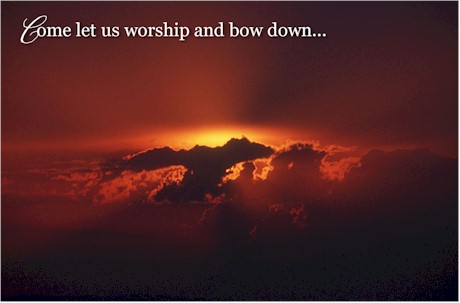
End Times: I Wish We’d All Been…Discipled
I’ve seen and heard my colleague Dr. Mike Svigel, who teaches eschatology at the premillennial dispensational seminary where I also teach, say, “If your eschatology leads you to fear the antichrist rather than to hope in the Christ…or to hate unbelievers rather than to love your enemies…then get a new eschatology.” Can I get an amen? Abigail Dunlap, a Millennial friend, grew up with a family member steeped in the former sort of end-times focus to which Dr. Svigel is referring, so I invited her to write a guest-post adding her voice to the active end-times conversation (recently seen here, here, and here):
The American evangelical church of the 1980s and 90s can be characterized as many things, but the word that looms largest in my mind as someone who grew up in it is this: excess. Coming off the recessions and scarcities of the 1970s, we embraced more: big hair, big meals, bigger homes, and obscenely big shoulder pads.
Sometimes the church mirrored this mindset with big egos, big churches (the start of the “megas”), and what I like to call “Big Theology”—the emergence of theological perspectives that captured the evangelical imagination across denominations. It was a natural marriage between cultural moments and Big Tent Evangelicalism. Big Theologies occupied our sermons and Bible study discussions—to excess—and they became what we were known for outside the church. And hands-down one of the biggest Big theologies was dispensational eschatology.
While premillennialism is a historically held interpretation, it was a wave that surged in the 1970s with Hal Lindsey’s The Late, Great Planet Earth that strengthened into a tsunami in the 1980s. And its swell didn’t die down until the late 1990s, after publication of the umpteenth book in the Left Behind series. Everyone was talking about the end times, the rapture, the horrors of the tribulation to come. Given global unrest, natural disasters, and the political tenor in the final decades of the 20th century, the hype is understandable.
But like with any obsession, too much of a good thing can produce harmful results. Churched Millennials have been publishing their memoirs capturing different aspects of 1980s and 1990s church culture and its problems for more than a decade now. When We Were on Fire is one of the earliest, and probably my favorite for its truth woven with lyricism. I was hopeful for a similarly relatable and insightful memoir from Sara Billup in her Orphaned Believers.
And Billups didn’t disappoint on the relatability factor. I completely identify with her experience growing up with a family member whose primary theological affinity appeared to be an end-times lens to reading Scripture. To borrow from Mike Minter’s concept of Son Burn, Billup’s dad, my relative, and many Boomers like them found in premillennialism their Big Idea. End-times studies and discussions became their main avenue to connect with God and other believers.
But Billups and I differ on the extent and cause of damage. She spends many pages enumerating the harms caused by the promulgation of premillennial eschatology. Evangelicals’ fascination, dare I say, fetish, with wondering if the current Russian leader/Pope/hyper-liberal politician was the anti-Christ isn’t just an inside joke. Preoccupation over the timing of the rapture and tribulation gravely impacted Billups and many others of our generation, leaving spiritual and psychological wounds. I can empathize to a degree: walking into a place where I expect to see people and finding it empty triggers an irrational convulsive fear reflex in the deepest part of me.
For Billups, the problem of premillennialism is one of bad theology. She calls premillennialism a “false construct” right up there with conspiracy theories and Christian Nationalism. The harms done to Billups and others are real. Yet I believe a different culprit is to blame. It is not the theology of dispensationalism itself (although there are certainly sketchy forms of it). Rather, it’s the headlong, unhealthy fixation and sensationalism that defined the era, of which premillennialism is the most obvious example.
Evangelicalism gave excessive attention to premillennialism, often disconnected from the broader scriptural contexts and associative theologies. This led to the neglect of teaching more important core doctrines of the church to our children and new believers—many of whom came into the fold as a result of popular level-treatments of eschatology.
A steady gorging of any theology in isolation will engender an imbalanced church with emaciated faith.
So where does this leave us? Adherents of dispensationalism, instead of defensively responding to Billups and others who have recently written on the issue would do well to incline ears and hearts. Eschatological interpretation, while important, is a secondary issue. Loving our sisters and brothers in Christ well is first order.
So, we should give those injured by the Big Theology excesses room to speak—whether on eschatology, spiritual warfare, or purity culture. We can accept the criticism humbly while still holding (humbly) to our understandings of the end times. And we should move forward with charity, committing to impart the whole counsel of God so that Jesus may have hearty, holistic disciples who are known not for their devotion to date-setting, but for their love.
***
Photo by Martino Pietropoli on Unsplash
After growing up on both coasts and in-between, Abigail Dunlap married a Virginia boy and put down roots to raise their three children. She’s a sometimes seminarian, aspiring author, board gamer, and writer.





